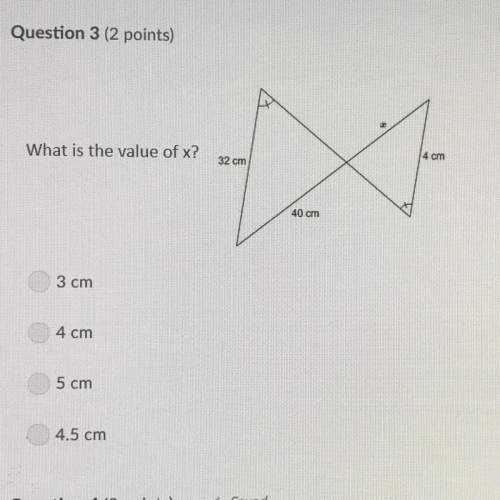
Mathematics, 02.01.2022 01:00 paulusl19
Equation Model 1. Follow the directions in the presentation to complete each Model slide. • On the Equation slide, determine an overall annual rate of depreciation for your vehicle. Explain how you determined your rate. Use the rate to write an equation to model the approximate value of the new car for any number of years after this year. • On the Graph slide, graph the equation using Desmos. Be sure to label the axes appropriately. Calculate Depreciation Follow the directions in the presentation to complete each Calculate slide. 1. On the Average Rates of Change slide, approximate the value of your vehicle 5 years from now, 10 years from now, and 20 years from now. Then determine the average rates of change for each time period, where the current year is Year 0. Interpret the rates of change in context of the situation. 2. On the Monthly Rate slide, give the monthly rate of depreciation. Write an equation that you can use to approximate the value of the vehicle for any number of months after it is purchased. Discuss how you can use either of your equations to approximate the value of the car after any length of time. Provide examples in your explanation. Reflect: Car Depreciation Look back over your presentation. Answer any two of the following questions. 1. If you were buying the car you chose in your presentation, would you buy it new or used? Explain. Use values from your presentation to support your explanation as necessary. 2. If you were buying the car you chose in your presentation as a used car, about how old would you want the car to be? Explain. Use values from your presentation to support your explanation as necessary. 3. What are some possible flaws in the method used to determine the approximate rate of depreciation for your car? What changes would you make? 4. Different vehicles have different rates of depreciation. What factors could affect a car’s rate of depreciation? Do you think your vehicle has a lower or higher rate of depreciation than the average? Why? Submission Confirm that your presen

Answers: 2


Other questions on the subject: Mathematics

Mathematics, 21.06.2019 15:40, demarcuswiseman
Is it true that product of 3 consecutive natural numbers is always divisible by 6? justifyyour answer
Answers: 2

Mathematics, 21.06.2019 19:30, robert7248
I'm confused on this could anyone me and show me what i need to do to solve it.
Answers: 1

Mathematics, 21.06.2019 20:30, maxy7347go
Does the function satisfy the hypotheses of the mean value theorem on the given interval? f(x) = 4x^2 + 3x + 4, [−1, 1] no, f is continuous on [−1, 1] but not differentiable on (−1, 1). no, f is not continuous on [−1, 1]. yes, f is continuous on [−1, 1] and differentiable on (−1, 1) since polynomials are continuous and differentiable on . there is not enough information to verify if this function satisfies the mean value theorem. yes, it does not matter if f is continuous or differentiable; every function satisfies the mean value theorem.
Answers: 1

Mathematics, 21.06.2019 22:30, miami158999
Agallon of apple juice cost $7 a pack of eight 4.23oz box of apple juice $2.39 which is a better deal
Answers: 1
You know the right answer?
Equation Model 1. Follow the directions in the presentation to complete each Model slide. • On the E...
Questions in other subjects:

History, 09.10.2019 19:30


Mathematics, 09.10.2019 19:30

Computers and Technology, 09.10.2019 19:30




English, 09.10.2019 19:30

Mathematics, 09.10.2019 19:30




